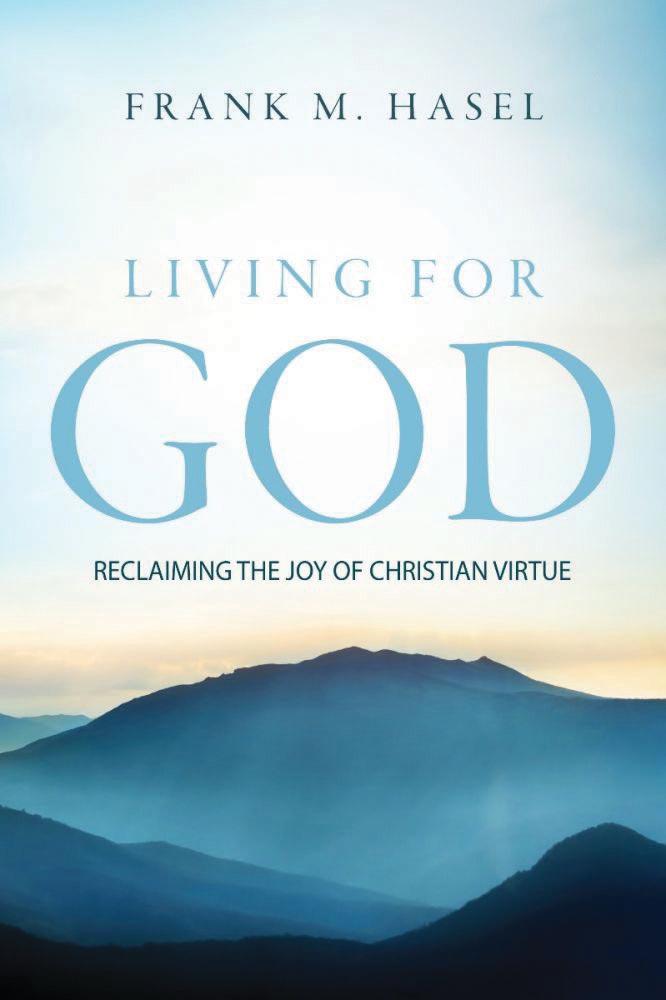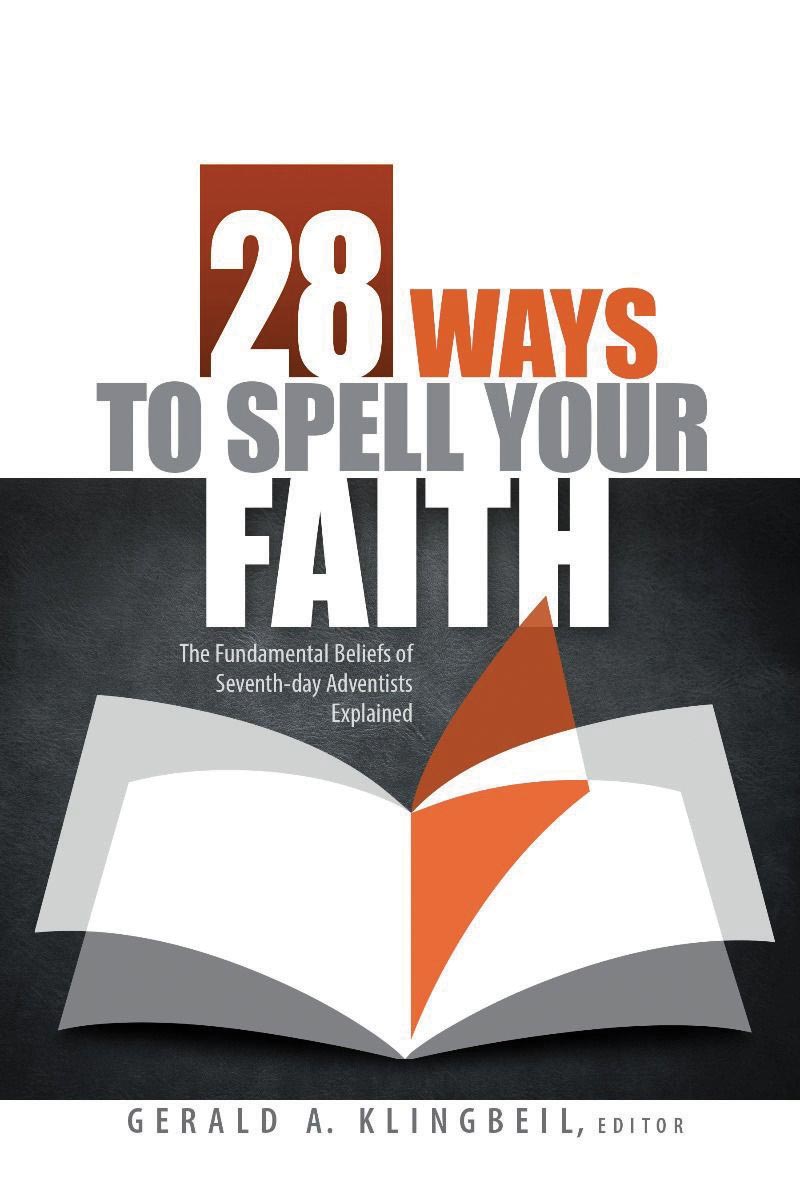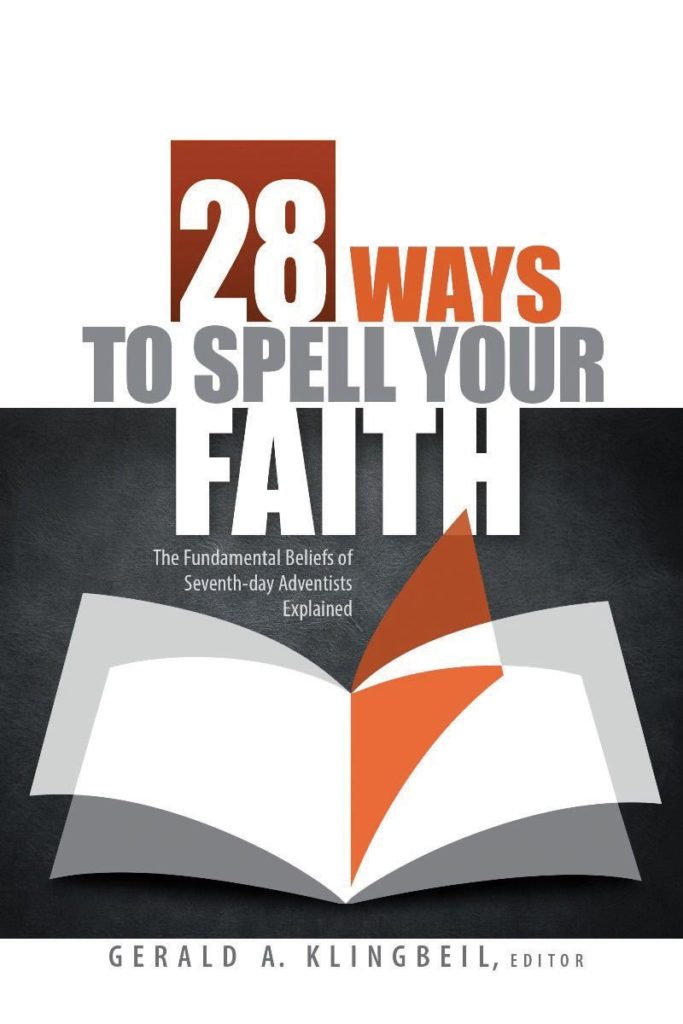
 Living for God:
Living for God:Frank M. Hasel, Living for God: Reclaiming the Joy of Christian Virtue, Pacific Press Publishing Association, 2020, 128 pages, US$14.99. Reviewed by Gerald A. Klingbeil, Adventist Review.
We don’t talk much about virtues. The term virtue conjures imageries of monastic life and self-flagellation. Virtues are seldom referenced in our cultural discourse, and I can’t remember when I last saw a sermon title that included the word virtue. This may be, perhaps, because of some misconceptions. Virtue is not something that we accomplish in our lives. Rather, it’s “a quality of moral excellence or goodness” (p. 13) that transforms lives.
Frank M. Hasel, an associate director of the Biblical Research Institute, manages to write about a complex issue in very readable and relatable language. One can hear the heart of a pastor when he notes in his introduction: “As you practice virtuous living, you will experience life more meaningfully, adding a depth and quality that you didn’t know before. Virtue is a true blessing, bringing joy to God, others, and ourselves. Virtues enlarge the quality of our relationship and elevate the level of our social abilities. But they are more than just markers of interpersonal excellence. Ultimately, virtues are living expressions of God’s characters. When manifested in our lives, they bring healing to others and glory to Him” (p. 15).
Following a brief introduction, the volume is divided into 13 chapters, ranging from a focus on waiting (as a virtue), humility, gratitude, prayer (including intercessory prayer) to highlighting challenges to virtuous living, such as envy or our relationship to social media. Intriguingly, Hasel doesn’t offer a discussion of the virtue of Jesus at the outset of the book (perhaps as a model to be emulated), but decided to include this discussion as the final chapter functioning as the climax of his book, for Jesus always is and must be the expression and focus of everything good and true and pure and noble and lovable and excellent and praiseworthy (cf. Phil. 4:8).
Each chapter opens with a thought-provoking or inspiring quote or Bible text and contains at its conclusion a number of stimulating questions that could be used for personal reflection or as a starting point for a group discussion. Always the scholar, Hasel has included references to quotes and ideas at the end of every chapter for those who would like to dig deeper.
Chapter 9 deserves particular attention. Entitled “Virtuous Living Through Suffering and Loss,” it focuses on the question of how to live virtuous lives in the midst of suffering and loss. The author shares part of his own experience when he lost his wife, Ulrike, to cancer in 2009. Hasel’s prose is moving, yet never sentimental or looking for effects. Any reader will be able to relate to his experience—for we all have walked through dark valleys and along circuitous paths, even though we may not have lost a spouse at a young age.
Living for God tackles an often-overlooked quality of Christian living without falling into the trap of being overly prescriptive or offering lists where those yearning for virtuous living can rate their performance. It also avoids the potential pitfall of righteousness by merits and virtues and focuses solidly on Jesus as our model of virtuous living. I read the volume as part of my early-morning reflection on God and His Word and always felt blessed. Sometimes I read an entire chapter; other mornings I managed a single page. Always I felt both encouraged and challenged to live up to God’s ideal for His creation. My guess is you will too.
 28 Ways to Spell Your Faith
28 Ways to Spell Your Faith
Gerald A. Klingbeil, ed., 28 Ways to Spell Your Faith, Adventist Review Ministries and Review and Herald Publishing Association, 2020, 160 pages, US$14.99. Reviewed by John McVay, president, Walla Walla University.
28 Ways to Spell Your Faith features essays that cover the preamble and the 28 fundamental beliefs of Seventh-day Adventists, framed by a helpful introduction and an important afterword. That description may risk a yawn. Why would dedicated, knowledgeable Seventh-day Adventists need another summary of their beliefs? Wouldn’t that be like poring over the manual for a household appliance that is used every day and thoroughly known?
What sets this book apart is both what it is not and what it is. It is not written by a single individual or a committee, offering carefully vetted and sanitized commentary on Adventist beliefs. By design, the authors represent a diverse chorus of voices from around the globe. An essay by a screenwriter lies alongside one by a noted evangelist; one by a technical communicator precedes one by a well-known systematic theologian. These are the heartfelt reflections of real, live Seventh-day Adventists describing how their fervently held beliefs function in the world.
The volume is not long and ponderous. The essays are brief; consistently just four pages in length, and often leave you wishing for more. The book offers no wooden consistency in treating the beliefs. Some authors touch on all major aspects of a doctrine, while others choose only a central implication or two. Some emphasize the content of a belief, while others accent practical application.
Lothar Wilhelm’s essay on the often-overlooked preamble to the beliefs ensures that the book, while confident, is not arrogant but humble. The belief summaries are “useful statements of the church’s understanding while not limiting or closing off that biblical understanding” (p. 14). The book is not only humble but also authentic. The hardest questions are not dodged but pondered, questions about how beliefs apply in the nitty-gritty of life. Especially notable in this regard are Robert McIver’s sketch of the Christian experience, Chantal Klingbeil’s discussion of the church’s flaws and God’s plans for it, and Carol and David Tasker’s description of family life that highlight the profound hope that “in the Bible, we see God moving remarkably among dysfunctional families” (p. 120).
I read this inspiring book over a few days. It left me with a buoyant sense of belonging to a global church inspired by a Christ-centered, hope-filled faith, one that is robust enough to be forthright about questions and challenges. I experienced a cohesive, coherent system of truth that is meeting needs and inspiring positive engagement while looking toward the grand, ultimate event of Christ’s return. I am confident that it will do the same for you.